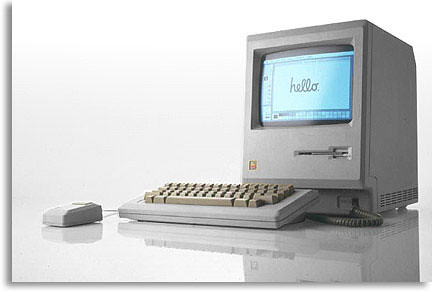APPLE launched the Macintosh 128k (the first Mac) just over 25 years ago, with one of the greatest TV ads ever. Aired only once during the super bowl, “1984” was directed by Ridley Scott, fresh from his Bladerunner success.
At a time when computing was dominated by huge mainframe computers and command line driven business machines, Apple asked consumers to ‘Say hello to Mac”, offering the first personal computer to come with a single button mouse and a graphical interface that changed the face of modern computing forever.
Despite this, it hasn’t always been plain sailing for the Mac. Initial sales were poor due to a lack of available software, and there was a lot of in-fighting between the Macintosh team, eventually leading to chief exec Steve Jobs being forced out in 1985.
He returned in 1997 after a succession of failures, losses and CEOs, and managed to completely revitalise Apple's fortunes within a few years.
Upon his return, Jobs brought in a new generation of operating system and promoted Jonathan Ive to senior vice president of industrial design, a move which proved hugely important. Ive redefined the look and feel of the Mac, introducing colour and spelling the end of the beige box.
Another thing that's worked in Apple's favour has been the loyalty of its fans. Many people described their first experiences with a Macintosh in an almost religious way, and Macintosh User Groups popped up all over the place.
The annual ‘Mac World’ conference in San Francisco has also helped. Founded by David Bunnell in January '85, Mac World has been an influential stage for keynote speeches announcing new Macintosh products and services.
By rights, Apple should be celebrating the 25th birthday of its flagship computers. After all, few computers have stood the test of time quite so well. Oddly, though, they have chosen not to celebrate the occasion at all, surprising their fans, and opening up questions about the future of the machine.
So, what does the future hold for the Mac? On the one hand, they're becoming more and more popular for home and small business users thanks to their good looks and ease-of-use.
But on the other, Apple are concentrating more and more on collaborative technologies now, and this year's announcement that they'll no longer present at Mac World has given rise to concerns they're starting to alienate the Mac faithful.
Considering how important these people have been in the history of the firm, I can't help but wonder if Apple's apparent lack of concern for them will prove harmful.
They are the people who said hello to Mac. Is it really a wise move to risk that they'll say goodbye?
Friday, 6 February 2009
blog comments powered by Disqus

